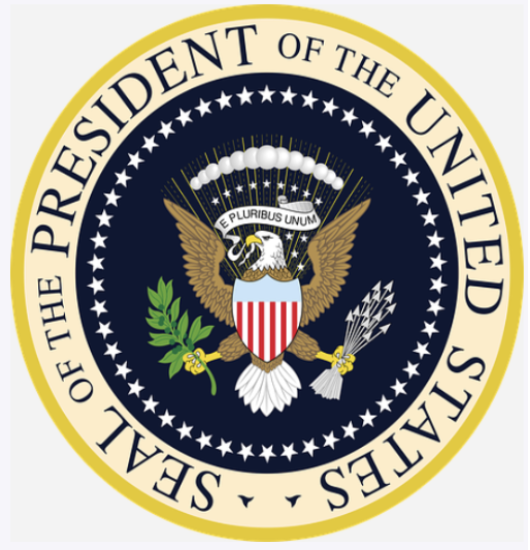Grade: 06, 07, 08
CCSS.ELA-Literacy.RH.6-8.2
Determine the central ideas or information of a primary or secondary source; provide an accurate summary of the source distinct from prior knowledge or opinions.
Grade: 06, 07, 08
CCSS.ELA-Literacy.RH.6-8.7
Integrate visual information (e.g., in charts, graphs, photographs, videos, or maps) with other information in print and digital texts.
Grade: 03
CCSS.ELA-Literacy.RI.3.3
Describe the relationship between a series of historical events, scientific ideas or concepts, or steps in technical procedures in a text, using language that pertains to time, sequence, and cause/effect.
Grade: 03
CCSS.ELA-Literacy.RI.3.4
Determine the meaning of general academic and domain-specific words and phrases in a text relevant to a grade 3 topic or subject area.
Grade: 03
CCSS.ELA-Literacy.RI.3.7
Use information gained from illustrations (e.g., maps, photographs) and the words in a text to demonstrate understanding of the text (e.g., where, when, why, and how key events occur).
Grade: 04
CCSS.ELA-Literacy.RI.4.3
Explain events, procedures, ideas, or concepts in a historical, scientific, or technical text, including what happened and why, based on specific information in the text.
Grade: 04
CCSS.ELA-Literacy.RI.4.4
Determine the meaning of general academic and domain-specific words or phrases in a text relevant to a grade 4 topic or subject area.
Grade: 05
CCSS.ELA-Literacy.RI.5.3
Explain the relationships or interactions between two or more individuals, events, ideas, or concepts in a historical, scientific, or technical text based on specific information in the text.
Grade: 05
CCSS.ELA-Literacy.RI.5.4
Determine the meaning of general academic and domain-specific words and phrases in a text relevant to a grade 5 topic or subject area.
Grade: 06
CCSS.ELA-Literacy.RI.6.3
Analyze in detail how a key individual, event, or idea is introduced, illustrated, and elaborated in a text (e.g., through examples or anecdotes).
Grade: 06
CCSS.ELA-Literacy.RI.6.4
Determine the meaning of words and phrases as they are used in a text, including figurative, connotative, and technical meanings.
Grade: 06
CCSS.ELA-Literacy.RI.6.7
Integrate information presented in different media or formats (e.g., visually, quantitatively) as well as in words to develop a coherent understanding of a topic or issue.
Grade: 07
CCSS.ELA-Literacy.RI.7.3
Analyze the interactions between individuals, events, and ideas in a text (e.g., how ideas influence individuals or events, or how individuals influence ideas or events).
Grade: 07
CCSS.ELA-Literacy.RI.7.4
Determine the meaning of words and phrases as they are used in a text, including figurative, connotative, and technical meanings; analyze the impact of a specific word choice on meaning and tone.
Grade: 08
CCSS.ELA-Literacy.RI.8.3
Analyze how a text makes connections among and distinctions between individuals, ideas, or events (e.g., through comparisons, analogies, or categories).
Grade: 08
CCSS.ELA-Literacy.RI.8.4
Determine the meaning of words and phrases as they are used in a text, including figurative, connotative, and technical meanings; analyze the impact of specific word choices on meaning and tone, including analogies or allusions to other texts.
Grade: 03
CCSS.ELA-Literacy.SL.3.2
Determine the main ideas and supporting details of a text read aloud or information presented in diverse media and formats, including visually, quantitatively, and orally.
Grade: 04
CCSS.ELA-Literacy.SL.4.5
Add audio recordings and visual displays to presentations when appropriate to enhance the development of main ideas or themes.
Grade: 05
CCSS.ELA-Literacy.SL.5.5
Include multimedia components (e.g., graphics, sound) and visual displays in presentations when appropriate to enhance the development of main ideas or themes.
Grade: 06
CCSS.ELA-Literacy.SL.6.2
Interpret information presented in diverse media and formats (e.g., visually, quantitatively, orally) and explain how it contributes to a topic, text, or issue under study.
Grade: 06
CCSS.ELA-Literacy.SL.6.5
Include multimedia components (e.g., graphics, images, music, sound) and visual displays in presentations to clarify information.
Grade: 07
CCSS.ELA-Literacy.SL.7.2
Analyze the main ideas and supporting details presented in diverse media and formats (e.g., visually, quantitatively, orally) and explain how the ideas clarify a topic, text, or issue under study.
Grade: 07
CCSS.ELA-Literacy.SL.7.5
Include multimedia components and visual displays in presentations to clarify claims and findings and emphasize salient points.
Grade: 08
CCSS.ELA-Literacy.SL.8.5
Integrate multimedia and visual displays into presentations to clarify information, strengthen claims and evidence, and add interest.
Grade: 03
CCSS.ELA-Literacy.W.3.6
With guidance and support from adults, use technology to produce and publish writing (using keyboarding skills) as well as to interact and collaborate with others.
Grade: 04
CCSS.ELA-Literacy.W.4.9b
Apply grade 4 Reading standards to informational texts (e.g., “Explain how an author uses reasons and evidence to support particular points in a text”).
Grade: 05
CCSS.ELA-Literacy.W.5.9b
Apply grade 5 Reading standards to informational texts (e.g., “Explain how an author uses reasons and evidence to support particular points in a text, identifying which reasons and evidence support which point[s]”).
Grade: 06
CCSS.ELA-Literacy.W.6.9b
Apply grade 6 Reading standards to literary nonfiction (e.g., “Trace and evaluate the argument and specific claims in a text, distinguishing claims that are supported by reasons and evidence from claims that are not”).
Grade: 07
CCSS.ELA-Literacy.W.7.9b
Apply grade 7 Reading standards to literary nonfiction (e.g. “Trace and evaluate the argument and specific claims in a text, assessing whether the reasoning is sound and the evidence is relevant and sufficient to support the claims”).
Grade: 06, 07, 08
CCSS.ELA-Literacy.WHST.6-8.6
Use technology, including the Internet, to produce and publish writing and present the relationships between information and ideas clearly and efficiently.












